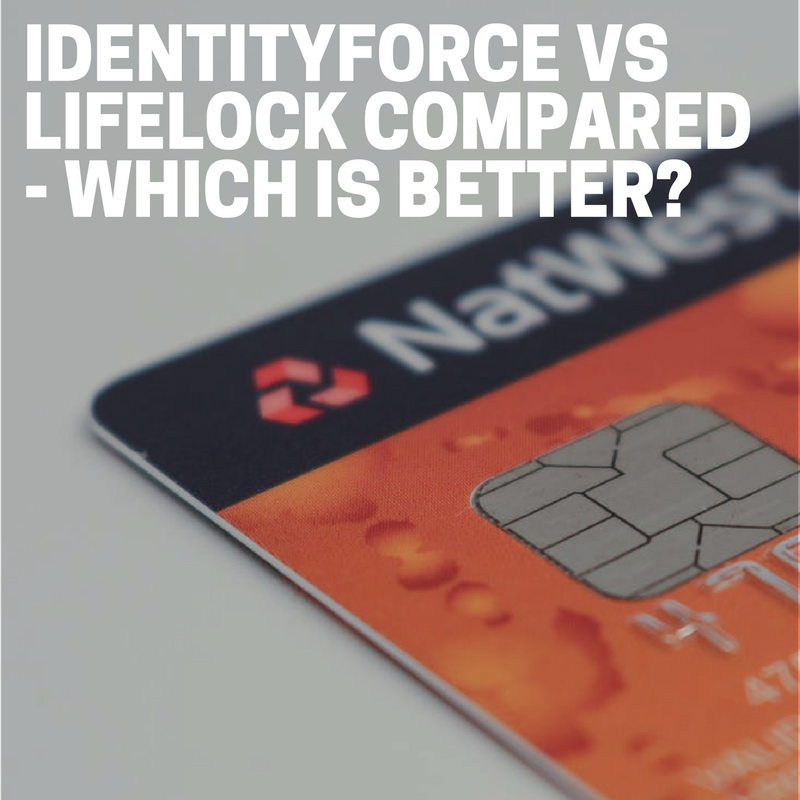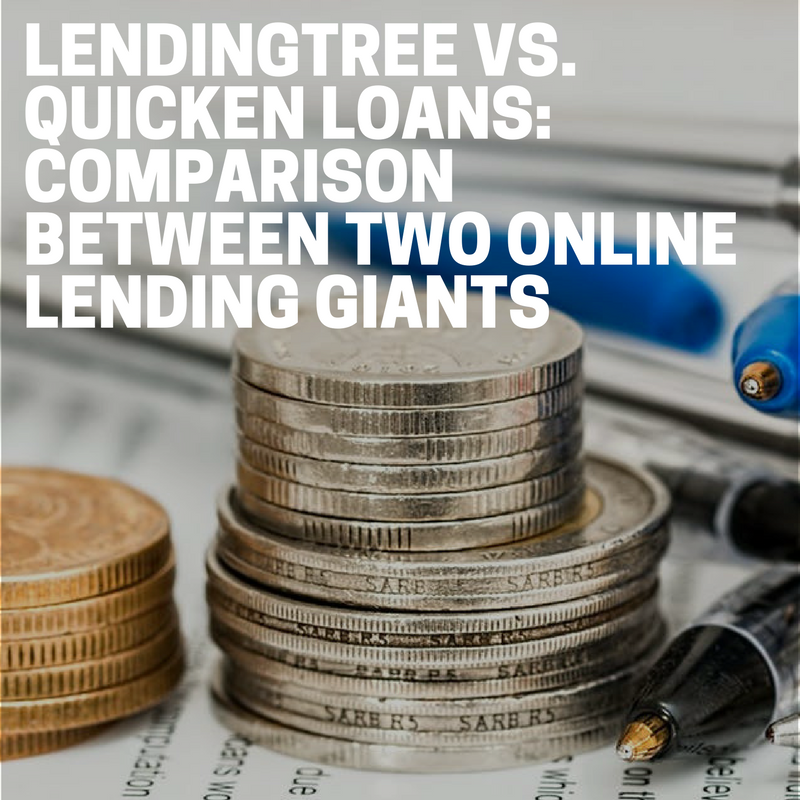There’s no better time than January to take a look at your personal financial situation and work on ways to improve it. (Although, the information in this article is solid year-round.) After all, you’ve likely had a massive financial outlay over the holiday season. Credit card bills will be coming in, and you have to pay your taxes.
This doesn’t need to be scary. In fact, we wanted to look at a positive and simple change that you can make to have more money in 2019: Switching your account to an online bank. It’s a fairly simple process that could increase your balance without a lot of effort on your part, so what’s that harm in learning more about it?

What Are Online Banks?
Well, simply put, online banks are banks that are online. Okay, that was too obvious. Online banks are set up to give you higher annual percentage yields (APYs) and charge lower fees; something that traditional banks and credit unions find it hard to compete with.
How can online banks do this? By having few or no brick and mortar locations. If they don’t have to keep the lights on in 3,000 or so banks, then they can pass those savings directly onto customers like you.
But don’t think you’ll get left in the dark. They make it easy to access all of your accounts and seek help online, via an app, or even on the telephone. And if you, like millions of Americans, are normally working when the banks are open, then it shouldn’t really make a lot of difference to you about the lack of an actual building being there.
Of course, there are some drawbacks to this business model.

Challenges with Online Banks
If you’re not a very technical person, then you might struggle to use the website or app. You might even have problems setting your account up in the first place. Normally though, this can be negated with the help of a tech-savvy and trustworthy friend or relative and it’s worth the initial hassle in order to reap those incredible benefits.
It might also be frustrating if there’s ever a problem with your account (i.e. a charge you didn’t make). Especially if you’d prefer to talk to someone face to face with all of the documents out in front of you. However, the phone or instant message operatives are happy to spend as long as they can to investigate the problem and work with you to solve it. Thankfully, though, these problems are often easily sorted and online bank staff are pros at dealing with them efficiently.
With all that in mind, we wanted to do a direct comparison between two of the most popular online banks that you’ve probably heard of and should definitely know more about: Ally vs Capital One 360. This is a detailed comparison of the two and will help you to make a decision about which one to get.
Ally vs Capital One 360
What Is Ally?
This is an online-only bank, offering savings and checking accounts. Ally makes up for its lack of physical locations by offering fantastic customer support. It’s a simple and straightforward bank for those customers who want no-frills service.
Ally was established in 1919 by the General Motors Acceptance Corporation (GMAC) to help people purchase GM cars. (You’ll be shocked to learn that it wasn’t an online bank at the time, we’re sure.) It was rebranded in 2006 to Ally. Despite only being on the market for 12 years, it is one of the highest regarded banks in the US. Despite now being separate from GMAC, Ally still offers auto financing for GM and Chrysler vehicles.

Pros
High-interest rates: Ally’s checking account offers between 0.1% APY and 0.6% APY, depending on how much you have in the account, which is much higher than the big banks can offer. While their savings account provides a 2% APY.
24/7 customer service: When you need help with your financial affairs, the last thing you want to hear is that the office is closed until 10 am on Monday. That’s why Ally offers round the clock assistance via its app, website, or phone.
Incredible ATM access: One of the most infuriating things about banks is getting charged for withdrawing your own money. That’s why Ally doesn’t charge you a fee on withdrawals. “But wait,” you cry, “what about the charges made by the ATMs themselves?” Ally customers can use any of the roughly 40,000 Allpoint ATMs without incurring a charge and Ally will refund you up to $10 per month in charges from domestic out-of-network ATMs.

More usable mobile app: Previously, Capital One 360’s app has been superior with more features and better usability. However, Ally has taken this on board and their new and improved app is much better for customers. For instance, it has a higher mobile deposit limit: $50,000 per day or $250,000 per 30 days, compared with Capital One 360’s $5,000 per day or $10,000 per 30 days. This is great if you’ll need to deposit more money. It is also accessible via the Windows store so that Microsoft users can benefit, as well as Android and Apple users.
Free overdraft protection transfers: Sometimes people overdraw. It could be an avoidable error, like splashing out too much in one month. Or, it could have been something completely unforeseeable, like a holiday causing your mortgage payment to be taken out two days before your wages get paid. Whatever the cause, Ally has you covered. They can automatically transfer funds (in $100 increments) from linked Ally savings accounts to cover an overdraft. Better yet, it’s a service that most banks charge for but Ally offers for free.
Cons
No physical location: If you’re the kind of person who prefers to do your banking in person, then Ally’s lack of physical banks can be troublesome. It may also cause a problem when you go to open your account as you have to mail in proof of identification and address, which can cause some customers to worry about their documents going missing.
$25 overdraft fee: Now, we mentioned above that Ally does its best to prevent you from going overdrawn, but if you don’t have a linked Ally savings account or there isn’t enough in either account to cover the overdraft, then you will have a fee of $25. This will be charged once per day for as long as your account is in the red.
Low APY for low balance customers: If your checking account has low funds in it, perhaps because you’re on a low income, then you will get a lower APY than a customer with more money. This is because Ally APYs are staggered based on the amount of money in the account.

What Is Capital One 360?
This online bank, which has a limited number of brick and mortar locations, also offers checking and savings accounts, but it’s a little newer. (Or a lot newer, if you use Ally’s established date, rather than re-branding date.) Capital One 360 launched in 2013, one year after Capital One bought out ING Direct.
Pros
High-interest rates: Capital One 360’s basic checking account will earn you between 0.2% and 1% APY. This is more than you will get at Ally, but again your rate of interest depends on the amount you keep in the account. Also, their savings account will earn you 1% APY, which is higher than the big banks, but lower than Ally.
Substantial ATM access: As with Ally, you’ll have access to the roughly 40,000 Allpoint ATMs, but you can also use the 2,000 Capital One ATMs or any number of partnered ATMs. Capital One 360 also don’t charge if you have to use an out-of-network domestic ATM, but they don’t refund fees from ATM companies.
Physical locations: Now, just to be clear, Capital One 360 doesn’t have as many branches as the big banks, but you can visit their website to see if they have a location near you. They have around 650 branches in New York, New Jersey, Texas, Louisiana, Maryland, Virginia, Delaware, Connecticut, and the District of Columbia.

Alternative physical locations: If you don’t live in any of the above places, don’t despair. You can still access branch services at a Capital One Cafe near you. What is a Capital One Café? It’s a mixture between a traditional Capital One 360 branch and a Peet’s Coffee bar, so you can access the same banking services and get a skinny macchiato at the same time. But there are only 27 locations in the US, so some customers won’t have one near them.
No standard charge for overdrafts: If you go into your overdraft, you won’t get slapped with a $20 fee and Capital One 360 won’t move money from linked accounts. Instead, they let you borrow the money under a low-interest rate. The interest rate might be a little more than the kind you’ll find on certain credit cards, but it’s a lot better than the fee. Plus, if you realize the error and correct it on the same day, you can avoid the interest payment.
Cons

Lower savings APY compared to other online banks: While still a much better APY than that offered by the big banks, Capital One 360’s APY on savings accounts is less than other online banks.
Charges $5 per checkbook after the first 50 checks: If you write checks frequently then this could well be a costly problem. However, as the trend moves more towards card or online payments, this is likely more a problem for small business owners or older people.
Limited customer service time: Okay, it’s a little cheeky to describe a customer service line that’s open from 8 am to 8 pm every day as “limited” but compared with Ally it is. We all know that financial trouble can hit at anytime, so if you have to go to the hospital at midnight or you need to travel unexpectedly, then you’ll want to be able to contact someone if your card doesn’t work, whether you’re trying to pay for a hotel room or a hospital bill.
Comparison
Now it’s time to get down to business; Ally vs. Capital One 360: which is the better bank for you? Well, as it turns out, that all depends on what you use your bank for, what benefits you need, and what limitations you’d be willing to live with. Both banks will be the best choice for different people with different circumstances.
Similarities – Fees
$0 minimum deposit to open a checking or savings account: This is a great thing for those customers looking to open a new account who don’t have readily available cash. It might be that you’re on a low-income or that your money is tied up in property or inheritance, but either way, these banks have you covered.
$0 monthly fees on checking accounts: Many banks will charge you a fee if the monthly balance of your checking account drops below a set amount, but Ally and Capital One 360 don’t do this. This means no additional charges if you have to take some sick leave from work or you have an unexpected expense that you have to fork out for.
$0 monthly fees on a savings account: Some banks will charge you a fee if your monthly balance for your savings account goes below a specified level. This seems counterproductive to us, because how exactly are you meant to save? Luckily, Ally and Capital One 360 don’t have this ridiculous fee.
$0 Extended Overdraft Fee: With many banks, you’ll receive an initial charge after entering your overdraft and then you’ll have a set number of days (usually one week) to bring your account back into the black before the bank levies an Extended Overdraft Fee. Sometimes they even add on fees every week. Neither Ally or Capital One 360 have extended overdraft fees, meaning that if you do go into the red, you won’t be penalized for staying there for a few days.

Other Similarities
Simple, safe apps: Both Ally and Capital One 360 have apps that can perform the basic banking functions. For example, viewing transaction history, checking account balance, transferring money, paying bills, contacting customer service. All while keeping your data safe and secure.
Fantastic customer service: One thing that is important for any financial institution is customer service. This is especially true if you are an online bank. Luckily, both Ally and Capital One 360 offer excellent customer service and reviews prove that. Ally offers customer service via phone, email, social media, and chat. You can contact Capital One 360 via phone, social media, and email.
Reliable and easy-to-use websites: You’re entering your personal and financial information into a website. So, you want it to have all of the security features to keep your data and your money safe. You also want the website to be easy to use. That’s why both Ally and Capital One 360 have invested so much time and effort in their websites.
Fewer ATM charges: Neither bank will make a charge for you using an out-of-network ATM. However, you may still be subject to charges from the ATM itself.
Differences

Actual physical locations: Capital One 360 has physical locations where you can meet with a customer service rep in person.
Customer service availability: If you need to contact your bank’s customer service line overnight, Ally will be taking calls but Capital One 360 won’t. If you don’t get a lot of free time between 8 am and 8 pm, you might be better off with Ally.
Interest rates: Ally’s savings account and various certificates of deposit offer a slightly higher interest rate. However, Capital One 360 does offer a higher APY on its longer-term certificates of deposit and on its checking account. Importantly, the interest rate for checking accounts at both banks increases with the balance of the account. This is why you should find out your average monthly balance for your current account.
Why Should You Choose Ally?
Ally is probably better for you if you’d like to earn a higher APY on your savings. Also, if you have a busy life and would prefer alternative ways to contact customer services. Ally is also for those who want access to a large network of ATMs as well as reimbursement for charges at out-of-network machines.
Why Should You Choose Capital One 360?
Capital One 360 is probably better for you if you want to bank somewhere with a physical location. Also, if you want to place some of your savings in a certificate of deposit or you’re looking for a higher interest checking account. Finally, Capital One 360 is right for those who have incurred multiple overdraft fees in the past.

To sum up, which bank you choose depends entirely on what you need from it. Take some time and give it some thought. Knowing what you need will help you eliminate what you don’t and help you make the right choice. Ignore the frills and gimmicks and skip the things that sound sort of cool. Pick the bank that gives you what will benefit you most.
When you’re deciding between the two, it might also help to read customer reviews. Also, seek out information from financial experts and talk to your friends. Get as much information as you can, so that you can be sure you’re making the right decision.
Okay, that’s it from us. Now, we’d like to hear your thoughts. Are you with Ally or Capital One 360? Do you have any advice on what’s good or bad about your bank? And do you think internet-only banks are a trend or here to stay? Let us know all that and more in the comments section.



